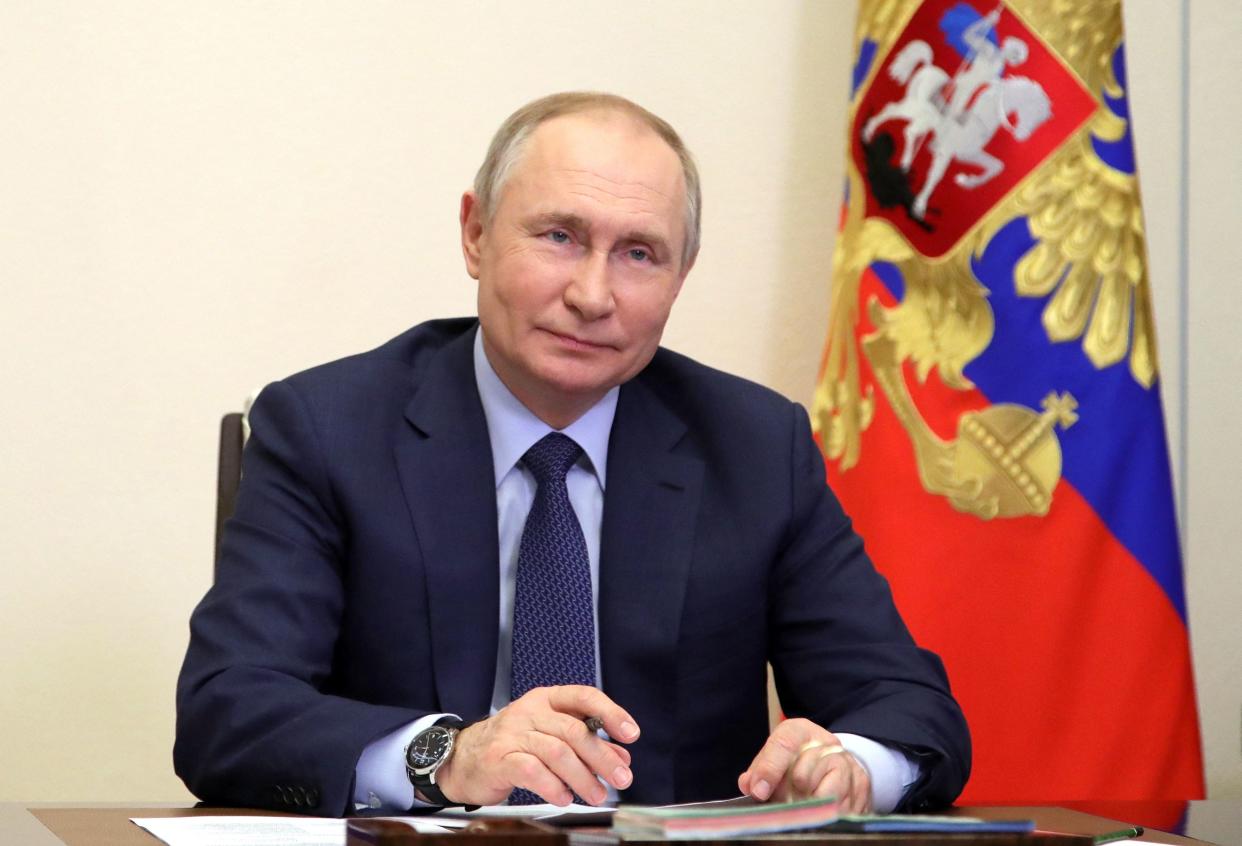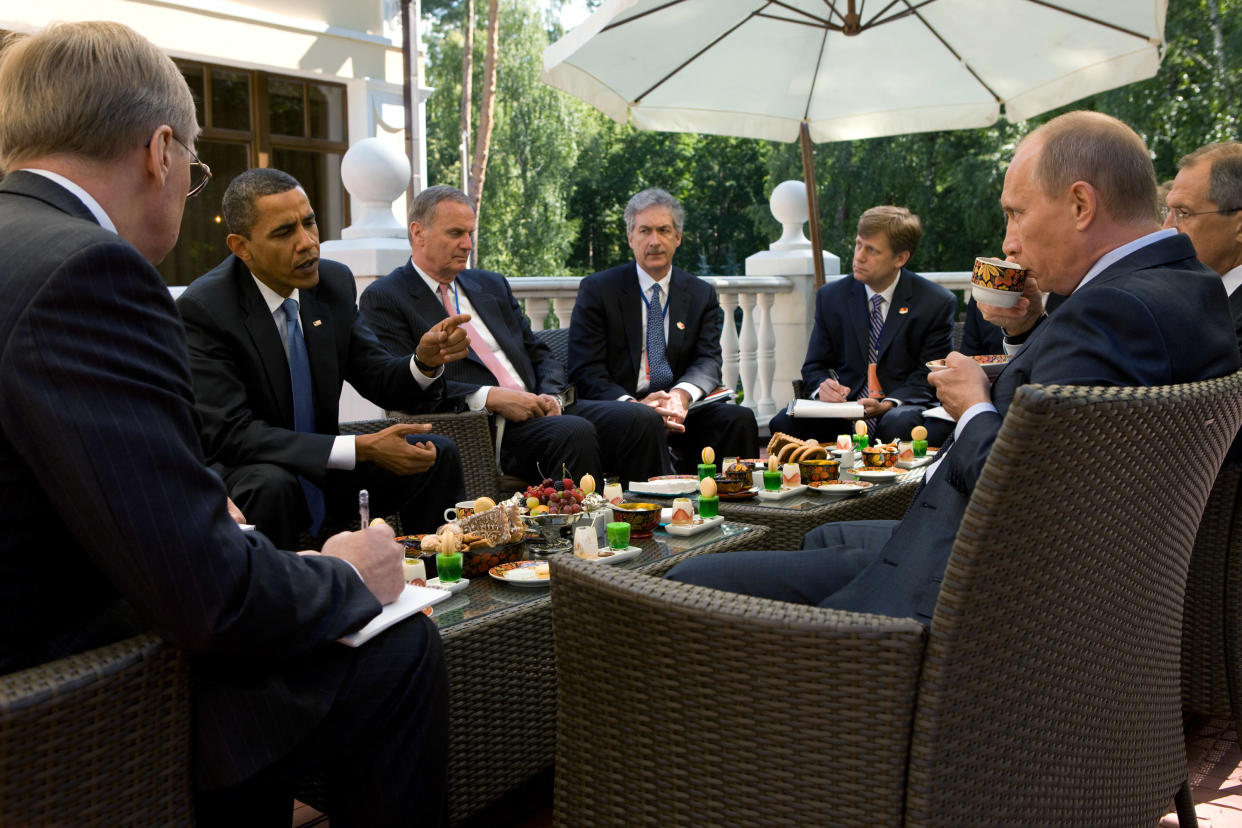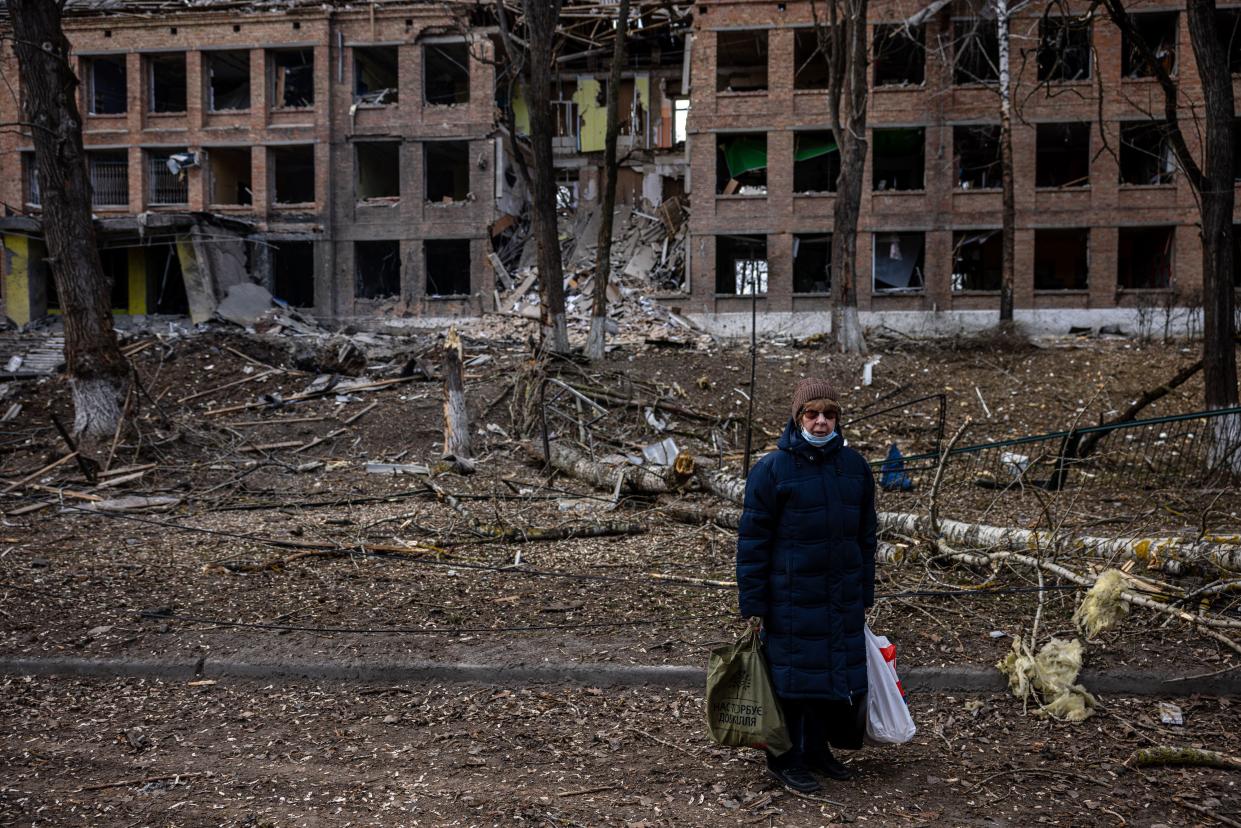Russia outlines four reasons it would use nuclear weapons
A former US ambassador to Russia has said recent comments by a senior Moscow politician about launching nuclear war are "nothing new" and signalled the Kremlin is no closer to launching a strike than before its invasion of Ukraine.
Dmitry Medvedev, the ex-Russian prime minister and president who is now deputy chairman of the country's security council, warned this weekend that Russia could turn to its nuclear arsenal against a country which used conventional weapons.
Medvedev told the Guardian that Russia's nuclear doctrine would not require an enemy state to fire first and listed four scenarios in which Russia would launch their nuclear arsenal:
If Russia was struck by a nuclear missile.
If any other nuclear weapons were used against Russia or its allies.
An attack on "critical infrastructure" which paralyses its nuclear deterrents.
If an act of aggression is committed against Russia and its allies that jeopardises the existence of the country itself.

Medvedev's words were the latest nuclear warnings coming out of Moscow after Vladimir Putin placed Russia's nuclear forces on "high alert" following the invasion of Ukraine on 24 February.
On Tuesday, Putin's spokesperson, Dmitry Peskov, refused to rule out the use of nuclear weapons if they were faced with an "existential threat".
And, on Thursday, Russia upped the rhetoric again, with Dmitry Polyanskiy, the Russian deputy ambassador to the UN, warning Moscow reserved the right to deploy nuclear weapons if "provoked".
However, the former US ambassador, Michael McFaul, said that the threats of nuclear weapons are "nothing new", and stated that "none" of the four conditions outlined by Medvedev were remotely likely.

McFaul tweeted: "None of these conditions are present or even being threatened. None will occur. Nato will never attack Russia pre-emptively, let alone jeopardise the existence of Russia. Never.
"Note, he did not say, 'if Nato supplies fighter jets to Ukraine'.
"Note, he did not say, 'if Russia begins to lose on the battlefield in Ukraine'.
"In fact, compared to Russian doctrine before the invasion of Ukraine, I see nothing new at all in what Medvedev said regarding the conditions under which Russia would use nuclear weapons. What am I missing?
"And as for actions, I have seen no evidence that Russian nuclear forces are on a higher alert now than before invading Ukraine. Correct me if I am wrong."
McFaul, who sat across from Putin regularly in negotiations, has previously said it would be a mistake to dismiss the president's comments on nuclear arms.
In February, shortly after the invasion was launched, he described Putin as "increasingly unhinged", adding: "The people who know Putin the best — people I know in Russia — are worried about his recent nuclear statement. The people who know him the least are saying it's cheap talk."

'Not wiling to compromise'
Ukraine and Russia are set to engage in the first face-to-face peace talks in more than two weeks on Tuesday, with the state of Putin’s mind - and whether he is willing to agree on any compromise - still open to question.
Officials in Kyiv have recently suggested Moscow could be more willing to compromise having seen stiff Ukrainian resistance and heavy Russian losses.
But a senior US State Department official said Putin did not give that impression.
"Everything I have seen is he is not willing to compromise at this point," the official told Reuters on condition of anonymity after Ukraine's president sketched out a potential way to end the crisis over the weekend.
The Kremlin, for its part, has said it was alarmed by US president Joe Biden's comment during a speech on Saturday that Putin must not remain in power.

But the fact they are taking place in person at all – for the first time since an acrimonious meeting between foreign ministers on March 10 – was a sign of shifts behind the scenes as Russia's invasion has become bogged down.
Russia is now in the second month of its invasion of Ukraine, having failed to gain a single significant city.
On the ground, there has been no sign of respite for civilians in besieged cities, especially the devastated port of Mariupol, whose mayor said 160,000 people were still trapped inside and Russia was blocking attempts to evacuate them.
But the mayor of Irpin, near Kyiv, said Ukrainian forces had seized back full control of the town.
Ukrainian authorities have claimed between 10-15,000 Russian troops have been killed in Ukraine - which, if true, would be the highest toll since the Second World War.
While the number has not been independently verified, a Nato source put the numbers of Russian soldiers killed at between 7,000 and 15,000
Putin's spokesman has denied the Kremlin ever thought it would need “a couple of days”, to take Ukraine and insisted the Russian offensive is going to plan.


